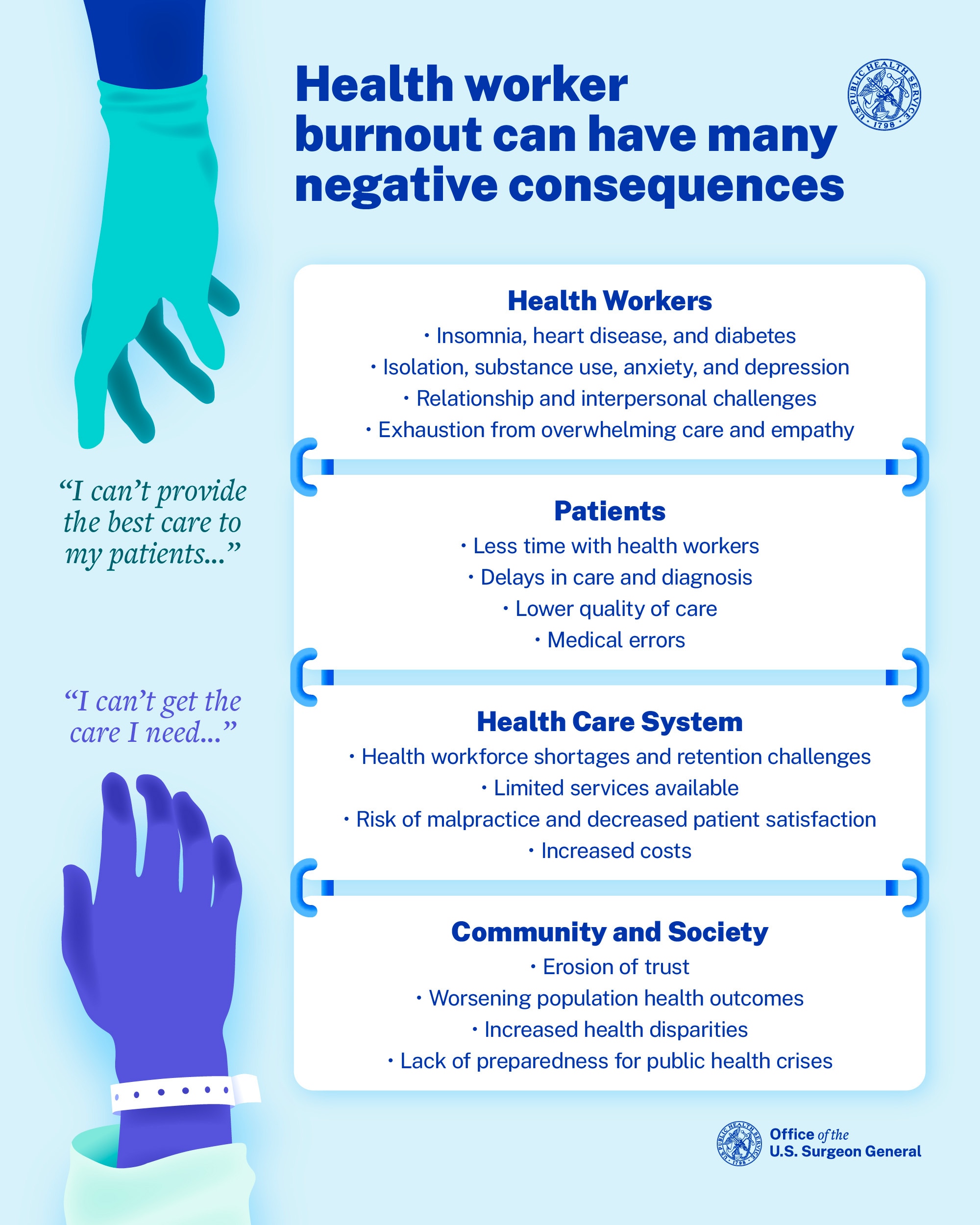Burnout In Working Professionals is an increasingly common issue in today’s fast-paced world, where chronic stress has become a part of daily life. Psychiatrist Dr. Sarthak Dave explains that burnout, resulting from prolonged exposure to stress, leads to physical, mental, and emotional exhaustion. This condition not only affects individual well-being but also has significant implications for workplace productivity and personal relationships.
What Causes Burnout?
Burnout is typically caused by an imbalance between work demands and personal capacity to handle them. Several factors contribute to this condition:
- Excessive Workload: Unmanageable tasks and tight deadlines leave little room for recovery, pushing individuals into a state of constant stress.
- Lack Of Control: Employees who feel they have little autonomy or influence over their work are more likely to experience burnout.
- Unclear Expectations: Ambiguity in job roles and responsibilities creates confusion and anxiety, increasing the risk of burnout.
- Poor Work-Life Balance: Spending excessive hours at work while neglecting personal life and self-care contributes significantly to emotional exhaustion.
- Unsupportive Environment: A lack of recognition, encouragement, or a toxic workplace culture can accelerate feelings of frustration and helplessness.
Recognizing The Symptoms Of Burnout
Burnout manifests in various physical, emotional, and behavioral ways. Common symptoms include:
- Physical Symptoms: Chronic fatigue, headaches, and difficulty sleeping are often the first signs of burnout.
- Emotional Symptoms: Irritability, loss of motivation, and feelings of cynicism or detachment are common emotional indicators.
- Behavioral Changes: A noticeable decline in productivity, procrastination, and withdrawal from social interactions can signal burnout.
- Neglect Of Self-Care: Individuals experiencing burnout often abandon healthy routines, including exercise, proper nutrition, and hobbies.

The Impact Of Burnout On Professionals
Burnout not only affects an individual’s mental and physical health but also impacts their professional performance and personal relationships. Prolonged burnout can lead to decreased productivity, errors at work, and even absenteeism. On a personal level, it may strain relationships with family and friends, leading to social isolation.
In the long term, untreated burnout can result in serious health issues, including depression, anxiety disorders, and cardiovascular problems. It is crucial to address burnout early to mitigate its harmful effects.
Strategies To Combat Burnout
Dr. Sarthak Dave emphasizes that combating burnout requires a combination of personal and organizational efforts. Here are some effective strategies:
- Prioritize Rest And Recovery: Regular breaks, quality sleep, and engaging in relaxing activities are essential for replenishing energy levels.
- Set Boundaries: Clearly defining work hours and learning to say “no” to unreasonable demands can help maintain a healthy work-life balance.
- Engage In Rejuvenating Activities: Activities such as exercise, meditation, and hobbies can reduce stress and improve mental health.
- Seek Support: Sharing feelings with loved ones or seeking guidance from mental health professionals can provide much-needed relief and perspective.
- Time Management: Efficiently prioritizing tasks and delegating responsibilities can prevent overwhelming workloads.
- Create A Supportive Workplace: Employers can play a vital role by fostering a positive work environment, recognizing employees’ efforts, and encouraging open communication.
The Role Of Organizations In Preventing Burnout
Organizations have a significant responsibility in preventing burnout among employees. Employers can take proactive steps to ensure their workforce remains motivated and healthy:
- Encourage Open Communication: Regular check-ins with employees to discuss workloads, challenges, and mental health can create a supportive atmosphere.
- Provide Resources: Access to counseling services, mental health workshops, and stress management training can equip employees with tools to handle stress.
- Foster Work-Life Balance: Flexible work hours, remote work options, and reasonable workloads can help employees manage their professional and personal lives effectively.
- Recognize Contributions: Appreciation and recognition of employees’ efforts can boost morale and reduce feelings of burnout.
A Call To Action
Burnout is a pressing issue that demands immediate attention from both individuals and organizations. Addressing the root causes of burnout, creating supportive environments, and prioritizing self-care can significantly reduce its prevalence and impact.
Working professionals must recognize the importance of maintaining balance in their lives and seek help when needed. Organizations, on the other hand, should invest in initiatives that prioritize employee well-being, as a healthy workforce is essential for long-term success.
Burnout may be challenging, but with the right strategies and support, it is possible to overcome it and regain balance, motivation, and well-being.

